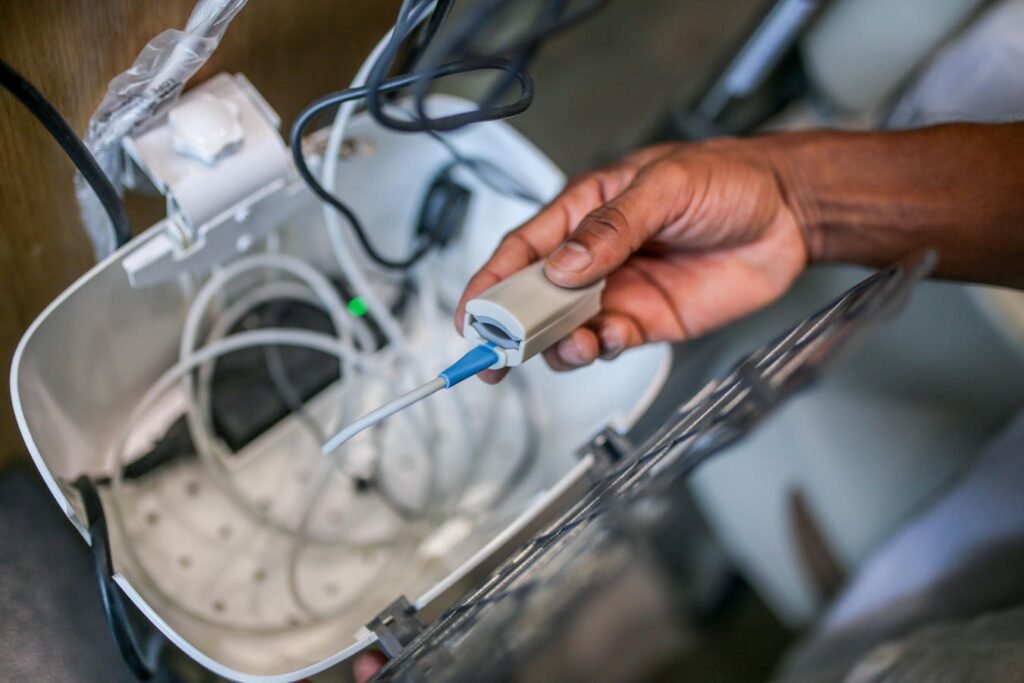Person holding a pulse oximeter
© 2024 Bloomberg Finance LP
Deprive your body of oxygen and you are minutes away from death. Cut your oxygen level from its normal range, 95 to 100% saturated, to just below 90% and, while you are not necessarily minutes away from death, your body will soon experience permanent damage as its tissues suffocate for lack of this precious chemical. Add on a serious illness, maybe a systemic infection, and every percent reduction in oxygen saturation portends a more dire outcome.
That is why when patients are admitted to intensive care units, clinicians carefully monitor their oxygen levels. More surprisingly, it is also why research on ethnic bias is critical to improving patient outcomes in the ICU, because without that research, we would not have discovered that the machines used to measure oxygen saturation often fail to work well in patients with darker skin tones.
The machine I am talking about is called a pulse oximeter, a tiny plastic clamp placed over the tip of a patient’s finger. Pulse oximeters shine a couple different wavelengths of light through the skin to measure how much light is absorbed. Oxygenated blood cells absorb different amounts of light than deoxygenated cells, thereby enabling the machine to estimate the relative amount of oxygenated versus deoxygenated cells.
Enter skin tone, stage left. Absorption of light depends not just on the amount of oxygen in a person’s blood but also on the amount of melanin in their skin. Among patients with darker skin tone, pulse oximeters frequently overestimate oxygen saturation. A patient might appear to be out of the woods – “oxygen saturation is now above 90%” – when in fact their saturation is significantly lower. If clinicians are slow to recognize the true state of the patient’s oxygen level, the consequences could be fatal.
The FDA has called for more research on this problem, with an emphasis on recruiting a more diverse group of patients into clinical trials. Unfortunately, research on racial and ethnic bias is under assault right now. A researcher proposing to study “ethnic bias” in pulse oximeter’s will probably have a hard time getting federal funding.
Perhaps this problem can be solved with a shift in language. Researchers can study how to “improve the accuracy of pulse oximeter’s across melanin levels” or something like that.
Whatever a given politician thinks about the general value of research on diversity, equity, and racial bias, however, I would hope they are open minded enough to reflect on the merits of specific research agendas that depend upon exploring issues of race or ethnicity.
If we do not improve pulse oximeters, people with darker skin tones will suffer. While that suffering will extend to white patients with significant sun exposure, it will disproportionately harm people of African and Hispanic ethnicity.
To halt funding for such research just because it explores ethnic disparities medical care – that is not just bad science, it is egregious ethics.


